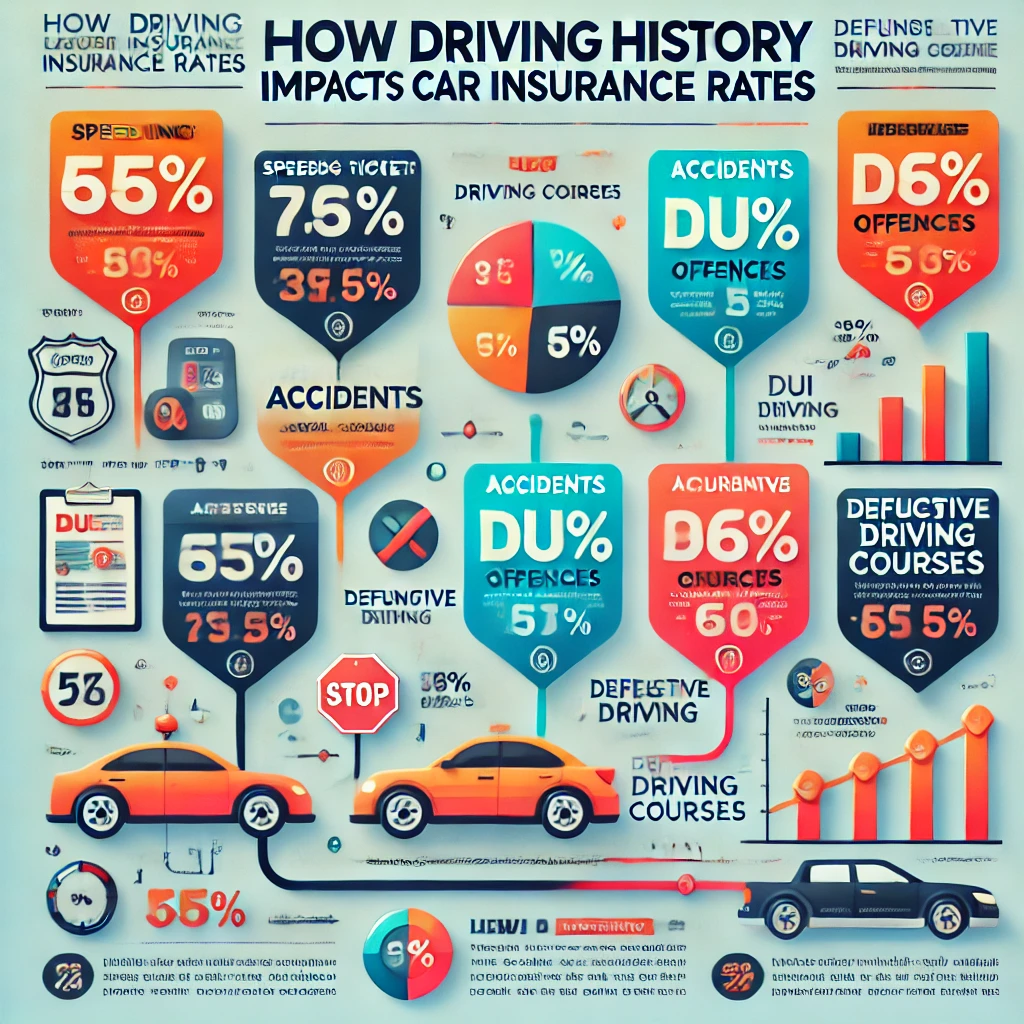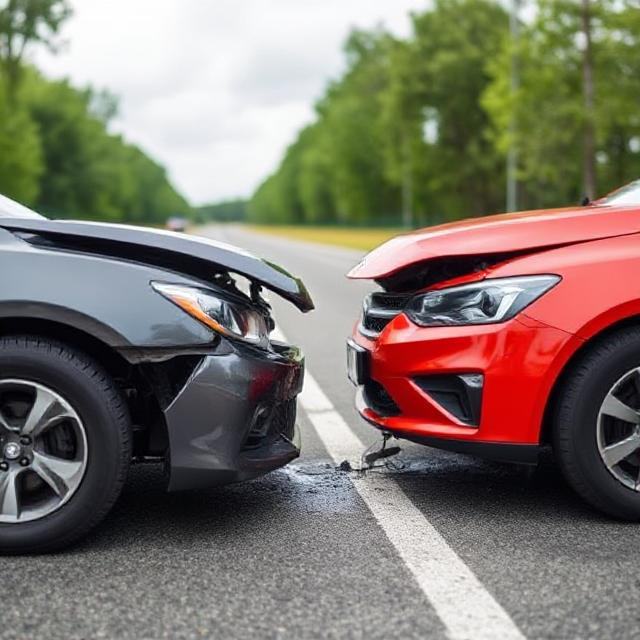Introduction
Auto insurance is a vital part of vehicle ownership, but with numerous policy types available, it can be overwhelming to decide which coverage is best for your needs. Comprehensive auto insurance is one of the most robust types of coverage, offering protection against a variety of risks that aren’t covered by standard policies. However, while it offers extensive protection, it also comes with certain drawbacks.
In this article, we’ll explore the pros and cons of comprehensive auto insurance for 2025 policyholders. Understanding these can help you decide if it’s the right option for you in today’s fast-evolving insurance market.
Table of Contents
- What Is Comprehensive Auto Insurance?
- The Pros of Comprehensive Auto Insurance
- 2.1. Protection Against Non-Collision Damages
- 2.2. Peace of Mind
- 2.3. Coverage for Natural Disasters and Vandalism
- 2.4. Helps in High-Risk Areas
- 2.5. Required for Financing or Leasing
- The Cons of Comprehensive Auto Insurance
- 3.1. Higher Premiums
- 3.2. Deductibles Can Be Expensive
- 3.3. May Be Unnecessary for Older Cars
- 3.4. Limited to Specific Events
- How Comprehensive Auto Insurance Works in 2025
- Is Comprehensive Auto Insurance Right for You?
- Conclusion
1. What Is Comprehensive Auto Insurance?
Comprehensive auto insurance is a type of coverage that goes beyond the basic liability insurance. While liability insurance typically covers damage to other people’s property and medical expenses if you’re at fault in an accident, comprehensive insurance offers protection for damages to your own vehicle from non-collision events. This includes things like natural disasters, theft, vandalism, and even hitting an animal.
Comprehensive auto insurance is typically optional unless required by a lender or leasing company. It provides broad coverage that helps repair or replace your vehicle when it’s damaged due to events not involving a collision with another vehicle.
2. The Pros of Comprehensive Auto Insurance
2.1. Protection Against Non-Collision Damages
One of the most significant advantages of comprehensive auto insurance is the wide range of incidents it covers. Unlike collision insurance, which only covers damages from a crash, comprehensive insurance protects your vehicle from a variety of unpredictable events such as:
- Theft: If your vehicle is stolen, comprehensive insurance can help pay for its replacement.
- Vandalism: In case your car is vandalized, you won’t have to bear the full cost of repairs.
- Natural Disasters: If your car is damaged by a storm, flood, hail, or earthquake, comprehensive coverage will help pay for repairs.
- Falling Objects: If a tree branch or other object falls on your vehicle, comprehensive insurance will cover the damage.
2.2. Peace of Mind
Comprehensive auto insurance offers peace of mind knowing that your vehicle is protected against a wide variety of risks. Whether you live in an area prone to severe weather, have concerns about theft or vandalism, or simply want extra security, this type of coverage ensures that you won’t have to cover large repair or replacement costs out of pocket.
With comprehensive coverage, you can drive with confidence, knowing that your vehicle is insured against the unexpected, from natural disasters to accidents that fall outside of your control.
2.3. Coverage for Natural Disasters and Vandalism
Comprehensive coverage protects you from damage caused by environmental factors like wildfires, hail, earthquakes, and floods. These events can be financially devastating, especially if you live in an area prone to such disasters. Without comprehensive coverage, repairing or replacing your vehicle after a natural disaster can be prohibitively expensive.
Additionally, vandalism is another event covered by comprehensive auto insurance. Whether it’s graffiti, broken windows, or other intentional damage, your policy can help cover the costs of repairs.
2.4. Helps in High-Risk Areas
If you live in an area with high rates of theft, vandalism, or harsh weather conditions, comprehensive coverage can be incredibly valuable. For example, urban areas with high crime rates or regions susceptible to hurricanes or wildfires may make comprehensive insurance a smart investment.
2.5. Required for Financing or Leasing
If you’re financing or leasing a car, the lender or leasing company may require you to have comprehensive insurance. This requirement ensures that the lender’s investment is protected in case your vehicle is damaged or destroyed in a non-collision event. This can be especially relevant for new cars, which typically have higher replacement values.
3. The Cons of Comprehensive Auto Insurance
3.1. Higher Premiums
One of the main drawbacks of comprehensive auto insurance is the higher premium cost. Since it offers broader coverage, your monthly premium will likely be more expensive compared to basic liability or collision-only insurance. Depending on factors such as the value of your vehicle and your driving history, this increase in premium can be significant.
Before committing to comprehensive insurance, it’s essential to evaluate whether the added cost is justified for your situation, especially if you have a reliable car and live in a low-risk area.
3.2. Deductibles Can Be Expensive
While comprehensive insurance can cover significant repair or replacement costs, it comes with a deductible. This means you’ll need to pay a certain amount out of pocket before your insurance kicks in. Deductibles can range from a few hundred to a few thousand dollars, and if you have a high deductible, it can take a large chunk out of your savings in the event of an incident.
When deciding on comprehensive coverage, consider choosing a deductible that is affordable and aligns with your financial situation.
3.3. May Be Unnecessary for Older Cars
If your car is older and its market value is low, comprehensive coverage may not be worth the cost. In many cases, the cost of the premium and deductible can exceed the value of the car. For older vehicles, it might make more sense to save money by opting for liability or collision-only coverage and putting the savings toward future vehicle replacement.
3.4. Limited to Specific Events
Although comprehensive insurance covers a wide range of incidents, it is not a catch-all policy. For instance, comprehensive insurance does not cover damages caused by an accident with another vehicle, medical expenses, or damages that happen while your car is being used for business purposes. To cover all potential risks, you may need to pair comprehensive coverage with additional policies, such as collision insurance or personal injury protection (PIP).
4. How Comprehensive Auto Insurance Works in 2025
In 2025, comprehensive auto insurance works similarly to previous years but is increasingly being bundled with advanced features. For example:
- Technological Enhancements: Some policies may offer digital claims processing and online tools to track repairs or vehicle damage.
- Telematics: Insurers are integrating telematics (data-driven insurance) into policies, which could offer discounts for safe driving or lower premiums if you install a device that tracks your car’s usage.
- Environmental and Cyber Risks: As the world becomes more digitized, some comprehensive auto insurance policies may also offer coverage for cyber threats such as hacking of your vehicle’s systems.
5. Is Comprehensive Auto Insurance Right for You?
Deciding whether comprehensive auto insurance is right for you in 2025 depends on various factors:
- Value of Your Vehicle: If your car is worth a lot or you’ve recently purchased it, comprehensive coverage may be worth the investment.
- Risk Factors: If you live in an area prone to theft, vandalism, or natural disasters, comprehensive insurance is essential.
- Financial Situation: Consider whether you can afford higher premiums and deductibles. For older cars, the added cost may not be justified.
- Lender Requirements: If you’re financing or leasing your car, comprehensive coverage may be required.
6. Conclusion
Comprehensive auto insurance in 2025 continues to provide significant protection for vehicle owners who want to safeguard against non-collision events. Its ability to cover a wide range of risks, including theft, vandalism, natural disasters, and more, makes it a worthwhile investment for many car owners. However, the higher premiums and potential deductibles mean it’s not always the right choice for everyone.
Before deciding on comprehensive auto insurance, evaluate the value of your vehicle, your location, and your financial situation. If it aligns with your needs, it can offer peace of mind and protect you from the unexpected costs of vehicle damage or loss.





